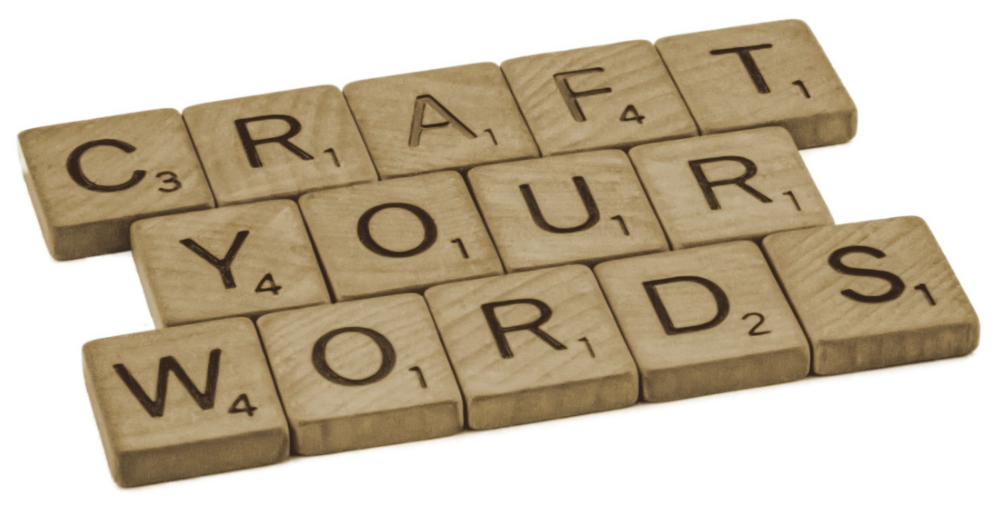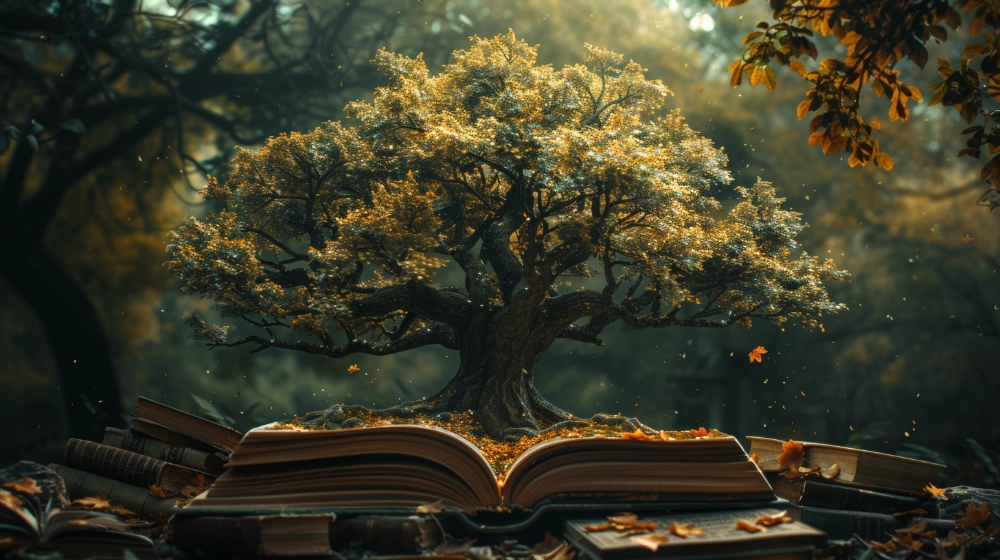Being both a practicing witch and an author, I find myself musing upon the intricate relationship between the power of words in both spellcasting and storytelling. The parallels between these two crafts are not merely superficial; rather, they delve deep into the very essence of human communication and the profound impact that carefully chosen words can have on our reality and imagination.
The Ancient Belief in the Power of Words
Throughout the vast tapestry of human history, from the earliest recorded civilizations to our modern era, people have ascribed great power to words. From the sacred utterances of ancient Egyptian priests to the complex incantations of medieval grimoires, the idea that words can shape reality has been a cornerstone of magical practice across cultures. In many traditions, the universe itself is believed to have been spoken into existence, underlining the fundamental creative force of language.
As a modern author, I see myself as part of this long lineage of word-weavers. While I may not be conjuring physical manifestations (at least, not outside of my magical practice), I am nevertheless engaged in the act of creation every time I put pen to paper or fingers to keyboard. The worlds that unfold in my novels are, in a very real sense, spoken into being through the words I choose.
The Intention Behind Words
In both magic and writing, the power of words is amplified by the intention behind them. When casting a spell, a witch must focus their will with laser-like precision, imbuing each word of an incantation with purpose and energy. This focused intent is what separates true spellcraft from mere recitation.
Similarly, as an author, my intention shapes the reader’s experience in profound ways. The emotional resonance I seek to create, the themes I wish to explore, and the messages I hope to convey all stem from my intention as a writer. This intentionality guides every choice, from the broadest plot points to the minutest details of description.
Precision and Specificity
One of the first lessons any apprentice witch learns is the importance of precise language in spellcraft. A single misplaced word can alter the entire outcome of a spell, sometimes with unforeseen and potentially dangerous consequences. This necessity for precision has honed my attention to detail, a skill that has proven invaluable in my writing career.

In fiction, precise language is the key to creating vivid imagery and evoking powerful emotions in readers. The difference between describing a character as “walking quickly” versus “striding purposefully” may seem subtle, but it can dramatically alter the reader’s perception. Just as in magic, every word in a story must be chosen with care and intention.
Rhythm and Repetition
The cadence of words plays a crucial role in both magical and literary practices. In ritual magic, the rhythm of an incantation can induce altered states of consciousness, facilitating the raising and directing of energy. Repetition, too, is a powerful tool, used to build intensity and focus.
These same principles apply in prose. The rhythm of sentences can create mood and tension, pulling readers deeper into the story. Literary devices such as anaphora—the repetition of a word or phrase at the beginning of successive clauses—can create a hypnotic effect, much like the repetitive chants used in magical rituals.
Creating Reality Through Words
Perhaps the most profound similarity between spellcasting and storytelling is their shared ability to create new realities. In magic, we speak of “speaking things into existence,” using the power of words to manifest our will in the physical world. As an author, I engage in a similar act of creation, using words to build entire worlds, complete with their own histories, cultures, and systems of magic.
This power to create extends beyond the confines of the story itself. A well-crafted tale can alter a reader’s perception of the world, challenging preconceptions and opening minds to new possibilities. In this sense, authors wield a subtle yet potent form of magic, capable of transforming hearts and minds through the artful arrangement of words on a page.
The Transformative Power of Naming
Names hold immense power in magical traditions. In ceremonial magic, for instance, knowing the true name of a spirit or entity is often said to grant control over it. In my magical practice, the act of naming is a sacred one, used in rituals of dedication and initiation.
As an author, I find that naming holds similar significance. The names I choose for my characters are never arbitrary; they are imbued with meaning, often drawing on etymological roots or mythological references to subtly convey aspects of the character’s nature or destiny. The naming of places, magical systems, and even the titles of my books are all acts of power, shaping the reader’s expectations and understanding of the story world.
Words as a Tool for Change
Both magic and storytelling use words as tools for effecting change. In spellcraft, we craft incantations designed to alter consciousness or circumstances, whether it’s a healing spell to mend a broken bone or a prosperity ritual to attract abundance.
Stories, too, have the power to change lives. A well-told tale can inspire readers to see the world differently, to question their assumptions, or to find the courage to pursue their dreams. As an author, I am acutely aware of this responsibility. The words I write have the potential to influence minds and hearts, and I strive to use this power wisely and ethically.
The Responsibility of the Word-Wielder
This brings us to the critical question of ethics in both magic and writing. As a witch, I adhere to ethical guidelines such as the Wiccan Rede, which cautions against using magic to harm others. As an author, I bear a similar responsibility to my readers.
The stories we tell shape cultural narratives and influence societal attitudes. Representation matters, and the words we choose can either reinforce harmful stereotypes or challenge them. I strive to create diverse, well-rounded characters and to approach sensitive topics with empathy and nuance. Just as I am mindful of the potential consequences of my spells, I am conscious of the impact my stories may have on readers.
Embracing the Magic in Writing
As I continue to develop my craft as both a witch and an author, I am constantly amazed by the interplay between these two aspects of my life. The discipline and focus required for effective spellcasting have made me a more deliberate and intentional writer. Conversely, the creativity and imagination I cultivate as an author have enriched my magical practice, allowing me to approach rituals and spellwork with fresh perspective.
To my fellow writers, I say this: embrace the magic inherent in your craft. Recognize the power you wield through your words, and use it wisely. Choose your words with the care of a spellcaster, infuse them with intention, and watch as they work their magic on your readers.
And to those who may be skeptical of magic, I invite you to consider the books that have changed your life, the stories that have moved you to tears or laughter, the words that have inspired you to action. Is this not a form of magic in itself?
In the end, whether we are casting spells or crafting stories, we are all engaged in the ancient and powerful art of shaping reality through words. It is a profound responsibility and an incredible privilege—one that I am grateful to explore in both my magical and literary journeys.





